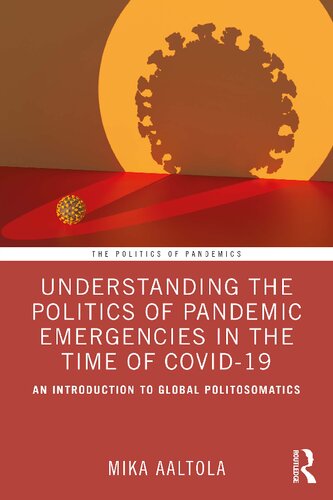

Most ebook files are in PDF format, so you can easily read them using various software such as Foxit Reader or directly on the Google Chrome browser.
Some ebook files are released by publishers in other formats such as .awz, .mobi, .epub, .fb2, etc. You may need to install specific software to read these formats on mobile/PC, such as Calibre.
Please read the tutorial at this link: https://ebookbell.com/faq
We offer FREE conversion to the popular formats you request; however, this may take some time. Therefore, right after payment, please email us, and we will try to provide the service as quickly as possible.
For some exceptional file formats or broken links (if any), please refrain from opening any disputes. Instead, email us first, and we will try to assist within a maximum of 6 hours.
EbookBell Team

0.0
0 reviewsThis book reviews the political significance of COVID-19 in the context of earlier pandemic encounters and scares to understand the ways in which it challenges the existing individual health, domestic order, international health governance actors, and, more fundamentally, the circulation-based modus operandi of the present world order.
It argues that contagious diseases should be regarded as complex open-ended phenomena with various features and are not reducible merely to biology and epidemiology. They are, as such, fundamentally politosomatic, namely that they disrupt, agitate, and trigger large-scale processes because individual somatic-level anxieties stem from individuals' sensing immediate danger through the networks of their local and global connectedness. The author further argues that pandemics have somatic effects in political expressions that transform the epidemic into national security dramas which should not, for the sake of efficient health governance, be treated as aspects extraneous to the disease itself. The book highlights that when a serious infectious disease spreads, a 'threat' is very often externalized into a culturally meaningful 'foreign' entity. Pandemics tend to be territorialized, nationalized, ethnicized, and racialized.
This book will be of key interest to scholars and students of global health and governance, pandemic security, epidemics, history of medicine, geopolitics, international relations, and general readers interested in the COVID-19 pandemic.